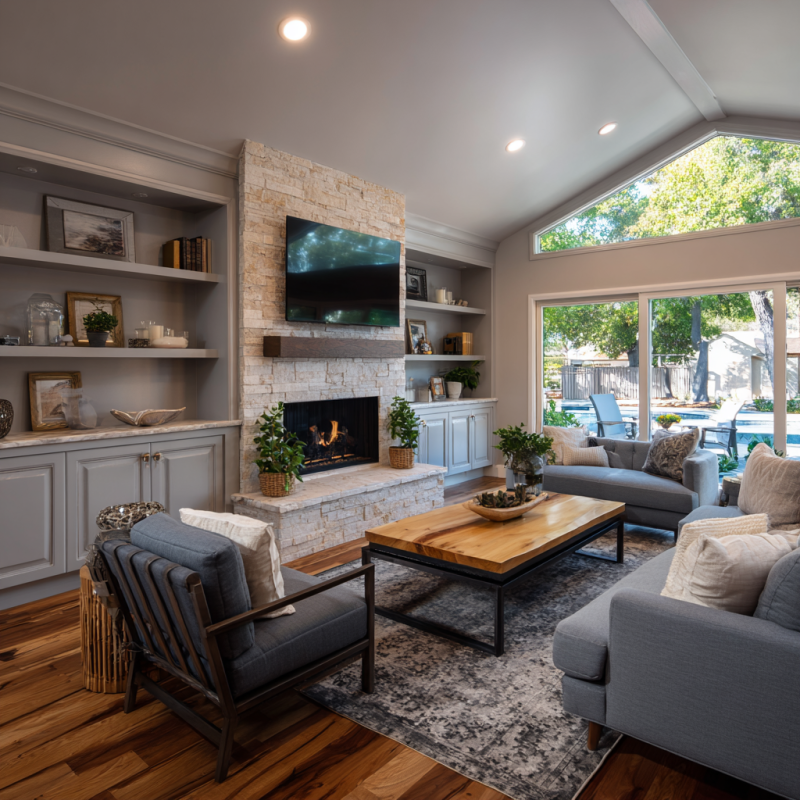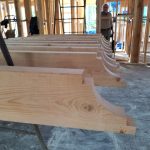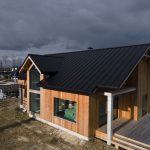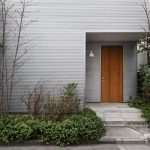
A closer look at when were Pleasant Hill’s ADU regulations updated
If you’ve ever wondered when were Pleasant Hill’s ADU regulations updated, you’re not alone. In 2025, the city updated its ADU regulations to clarify permit processes, size limits, and other important requirements. These changes aim to streamline the construction of accessory dwelling unitsfor homeowners seeking extra living space, rental income, or multi-generational housing. Understanding these updates is key to avoiding permit delays and ensuring your ADU project meets local codes. In this guide, we’ll break down what these changes mean and how they can benefit your project.
Why Pleasant Hill’s ADU regulations matter to you
Before diving into the specifics of any city’s ADU regulations, it helps to understand why these rules matter in the first place. An ADU can be a basement apartment, a detached cottage, or an over-the-garage unit. Each of these configurations can offer unique benefits to your household, from accommodating aging relatives to generating rental income. In Pleasant Hill, the popularity of ADUs has gradually risen, especially when property owners realize that a compact, efficient living space can boost overall property value.
- Expanded living options: By building an ADU, you can create more flexible living arrangements for extended family or guests.
- Potential for rental income: Some homeowners rent out their ADU to offset mortgage costs or provide stable extra income.
- Increased property value: Well-planned ADUs often raise the resale value of your property, appealing to future buyers looking for flexibility.
What the 2025 ADU update changed
Since Pleasant Hill’s ADU regulations were last updated in 2025, local homeowners have enjoyed clearer guidelines. The city refined several areas, including minimum lot size, maximum unit size, parking requirements, and design standards. While these rules may shift over time, the 2025 adjustments helped unify previously scattered guidelines into a more transparent format.
You might notice these key points in the 2025 regulations:
- Lot requirements: The city set specific lot size minimums and setbacks. For many parcels, an ADU can be tucked behind or attached to the main dwelling as long as it meets these new space constraints.
- Parking nuances: Depending on your location in Pleasant Hill, extra off-street parking for your ADU may or may not be required. There are often exceptions for proximity to public transit, which can reduce on-site parking needs.
- Design standards: The city wants ADUs to blend nicely with the primary home, so your project may need to match exterior materials or roofing style. Although these rules make your ADU cohesive with the neighborhood, they also add some design considerations.
- Streamlined permit process: The 2025 update introduced a more transparent path for obtaining approvals. While you still need to show accurate plans to city building officials, the guidelines are more straightforward to follow.
How to stay compliant with Pleasant Hill’s ADU updates
Staying aligned with these new regulations can feel complicated, but your path to a permitted ADU is smoother if you follow a few best practices:
Review official guidelines
Always check the city’s current ADU ordinance to confirm the latest rules. Though the 2025 update is the most recent, the city may refine the rules at any point. If you are unsure, call the local building department or consult with a qualified contractor.
Talk to a local ADU specialist
Consider connecting with local experts who have specific experience in Pleasant Hill. For instance, you might consult a Pleasant Hill construction professional or an architect who knows the city’s unique codes. Their insights can save you time and reduce headaches.
Prepare a thorough plan
A clear project plan is essential to show city inspectors how your ADU meets each requirement. Include dimensions, materials, and site location details, plus a parking layout if applicable. Your plan is also the main item the city will reference if any neighbor concerns arise.
Focus on aesthetics
Pleasant Hill’s officials value harmony between the main residence and the ADU. Matching rooflines, paint colors, and overall style can make city approval smoother. This approach also boosts the property’s curb appeal.
Anticipate inspections
Once you begin building, city inspectors will check each phase of construction. Proper scheduling of these inspections helps you avoid delays. If you used a local contractor, they usually know the city’s rhythms and can guide your timeline.
Frequently cited hurdles and how to overcome them
Even with the 2025 updates, you might encounter some stumbling blocks along the way. It is possible that certain neighborhoods have specific homeowner association (HOA) rules that layer on top of city regulations. You could also face cost overruns, especially if you did not factor in utility upgrades or specialized design requirements.
Below is a quick table summarizing common hurdles and practical fixes:
| Hurdle | Possible Cause | How to Address |
| HOA restrictions | Additional neighborhood covenants | Check HOA bylaws, prioritize negotiations if needed |
| Unexpected costs | Utility connection fees | Budget for extra site prep, consult city departments |
| Permitting delays | Incomplete or inaccurate forms | Engage local experts, double-check plan details |
| Design conflicts | Mismatch with main dwelling | Use matching materials, consult a design professional |
| Time constraints | Underestimating build timeline | Build in buffer time for inspections and revisions |
If you feel overwhelmed, you do not have to go it alone. Good news, the Mazzamuto construction scene has professionals who can help you iron out every detail. You can also look into specialized services like ADU in Pleasant Hill consultations or in law unit Pleasant Hill conversions. Each route offers specific knowledge of city requirements.
Using the 2025 update to your advantage
Just because additional regulations exist does not mean building an ADU is harder. In fact, the city’s 2025 overhaul aimed to simplify the process. By centralizing information, the city made it more straightforward for you to understand your responsibilities. That means clearer guidelines on lot coverage, set-back minimums, and the maximum number of ADUs allowed on a property.
- Consider your family’s changing needs: A well-built ADU can help you address life events, from welcoming a new child to caring for elderly parents.
- Explore rental opportunities: If you plan to rent the unit, factor in local housing demand. Pleasant Hill’s stable real estate market may help you secure steady tenants.
- Look for potential incentives: Some California jurisdictions offer fee waivers or rebates for energy-efficient ADUs, so do a quick check for any local or state-level programs.
Working with Mazzamuto Construction for Your ADU Project
Building or renovating an ADU is a big investment, and Mazzamuto Constructionis here to guide you every step of the way. With extensive experience in Pleasant Hill’s ADU regulations, we ensure your project meets all local codes. Our design-build approach allows us to handle everything from concept to completion under one roof, offering a seamless process. Contact us for upfront estimates, references, and expert advice to turn your ADU vision into reality.
Clear communication about your expectations goes a long way toward a successful ADU build.
When were Pleasant Hill’s ADU regulations updated
So, when were Pleasant Hill’s ADU regulations updated? They were revised in 2025 to create a clearer, more efficient process for homeowners. These updates simplified permitting, clarified design rules, and helped make ADUs easier to integrate into Pleasant Hill neighborhoods.
By knowing the latest regulations, preparing detailed plans, and working with trusted local contractors, you can build an ADU that complies with the city’s requirements and enhances your property.
Take the Next Step Toward Your ADU Project
Ready to move forward now that you know when were Pleasant Hill’s ADU regulations updated? Contact a Mazzamuto constructionprofessional today to ensure your ADU meets every requirement and turns your vision into reality.
Frequently Asked Questions
1.What ADU types are allowed in Pleasant Hill?
Pleasant Hill allows detached, attached, interior conversion, and Junior ADUs (JADUs). Each type has specific requirements for size, utilities, and design, based on zoning rules.
2. How to get an ADU permit in Pleasant Hill?
To get an ADU permit in Pleasant Hill,check zoning rules, gather required documents, submit your application, and pay fees. Follow up for inspections and approvals.
3. Do I need dedicated parking for my ADU?
In many parts of Pleasant Hill, you do require at least one parking space. However, if you are near convenient public transit, you might be exempt. Check with city officials to confirm your specific circumstances.
4. Is there a difference between an ADU and an in-law unit?
An ADU (accessory dwelling unit) is a legal designation for a secondary dwelling on your property. An in-law unit is sometimes used interchangeably but usually refers to a unit designed for extended family members. You can learn more at in law unit Pleasant Hill.
5. How long does it usually take to build an ADU?
Timelines vary based on the complexity of your project. Factor in plan development, permit approvals, construction, and final inspections. Many homeowners find it can take several months to a year.
Key takeaways
- In 2025, Pleasant Hill updated its ADU rules to make the permitting process easier to understand.
- Staying compliant means reviewing official city guidelines, preparing thorough plans, and matching key design elements.
- Local construction experts can streamline the process, especially if they have experience with ADUs in Pleasant Hill.
- Keep a clear, organized project plan to expedite permit approvals and reduce your risk of fines.
- Your ADU can serve as living space for family, short-term guests, or a rental that boosts your household budget.




